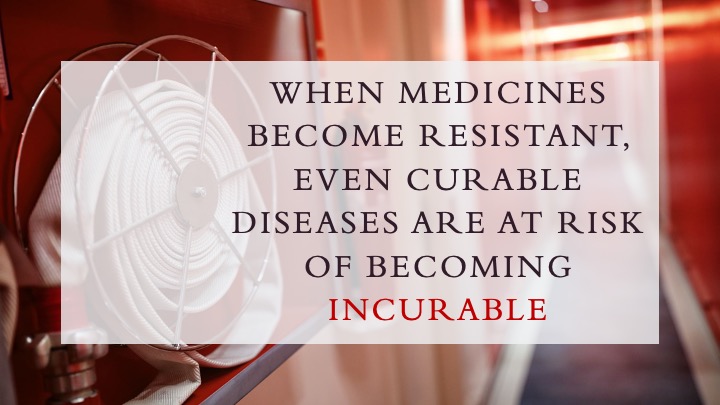When medicines become resistant, even curable diseases are at risk of becoming incurable
SHOBHA SHUKLA, BOBBY RAMAKANT - CNS

Antimicrobial resistance is threatening health security and sustainable development
(Image by CNS) Details DMCA
Antimicrobial resistance occurs when microbes such as bacteria, viruses, fungi, and parasites no longer respond to medicines. This makes common infections harder to treat and increases the risk of disease spread, severe illness and death. That is why India and other countries worldwide are observing 18-24 November as World Antimicrobial Awareness Week.
Thomas Joseph, World Health Organization (WHO)'s head of Antimicrobial Stewardship and Awareness said that "Antimicrobial resistance is undermining a century of progress in medicine - infections that were previously treatable and curable with our drugs are becoming (or at risk of becoming) incurable (as medicines are not working against infections). Even common infections are becoming risky and a problem. Surgeries are becoming risky. Cause of antimicrobial resistance is found in the behaviour of human beings who are misusing or overusing antimicrobials. We must ensure that when we are sick we are only taking antimicrobials on medical advice and medical supervision."
Keep the healthcare facilities clean: use medicines responsibly and appropriately
Irresponsible and inappropriate use of antimicrobials (antibiotics, antifungals, antivirals or antiparasitics) is not justified to compensate for failure of ensuring standard infection control practices.
Dr Kamini Walia, Scientist at the Indian Council of Medical Research (ICMR), Ministry of Health and Family Welfare, Government of India, is currently leading the setting up of antimicrobial surveillance network across the country.
"Antimicrobial resistance is a direct result of excessive use of antimicrobials which is mostly done to compromise for poor infection control practices. Now we have a big burden of drug resistance in the community as well as drug-resistant nosocomial infections- hospital acquired drug-resistant infections. These drug resistant pathogens are invisible threats that continue to claim invisible victims in our hospitals. They are invisible because in India there is no government system to record the deaths due to drug-resistant infections. So we continue to remain oblivious to the actual burden of drug-resistant infections in our country" said Dr Kamini Walia.
(Note: You can view every article as one long page if you sign up as an Advocate Member, or higher).





